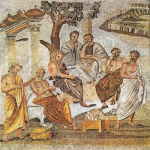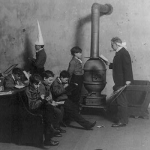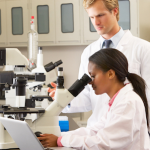Science and democracy, when museums were the source of scientific education, and what's the real deal with Prevagen?
science education
This article is the third in a three-part series that is adapted from an essay written by Dr. Alex Berezow, now archived at Suzzallo Library's Special Collections at the University of Washington. In Part III, he discusses the societal problem of willful ignorance.
A new study reveals that nearly 40% of Europeans want to "live in a world where chemical substances don't exist." Another 82% didn't know that table salt is table salt, whether it is extracted from the ocean or made synthetically.
How can you identify a scientifically ignorant person? Ask him if he's concerned about the health effects of GMOs. If the answer is yes, you've identified somebody who probably couldn't pass an 8th grade science test. Too harsh? Not according to the latest Pew poll.
In high school, I took organic chemistry, microbiology, genetics, and anatomy & physiology. Without a doubt, I received a world-class science education, despite growing up in a largely rural area that wasn't wealthy. So for Teacher Appreciation Week, I'd like to thank the middle school and high school leaders who greatly shaped my life.
Why hire a PhD or a person with a bachelor's degree in science? Instead, it's cheaper and easier to hire a social media intern who's spent the last few years copying and pasting press releases about scary toxins and miracle vegetables.
There are those who believe that Ph.D's are still useful. Others might agree -- but with this gigantic caveat: It's only useful to those who are 100% certain that a life at the research bench is what they want to do.
Only about 17% of Americans are "active science news consumers." At least most Americans seem to understand that the mainstream media is a terrible place to get science news.
At one time, "The Three R's" (reading, 'riting, 'rithmetic) were considered the marks of a person who possessed at least a rudimentary education. How about as part of national education reform, we bring back that concept – and update it to include civics, economics, science, and technology? We could call it CRRREST.
To refresh our minds with some cleansing thoughts after a punishing campaign season, let's focus on something America does really well: Science. To that end, the following remains true: The United States leads the world in Nobel Prizes, and our nation spends more money on research and development than every other country on Earth.
Unbeknownst to David Seidemann, a Brooklyn College geology professor and ACSH scientific advisor, he was placed on a "hit list" by the academic politically-correct mafia. In an article for Minding the Campus, Prof. Seidemann recalls a chilling tale in which he was investigated by the administration for alleged misconduct.
A proposed resolution by the New York State PTA, to be voted on at their November convention, supports mandatory labeling and a GMO ban from school food. The resolution, which is shocking coming from an organization that, is packed full of pseudoscientific thinking and anti-biotechnology propaganda.











